Last Updated on June 8, 2023 by Ellen
On a clear, calm evening, a Filipina went fishing with her husband in a small boat. They were experts – lifelong fisher folk surviving on the catch. Suddenly, the weather changed. Lightning struck the husband. He was flung out of the boat. In a panic, the wife searched the dark water for her partner, found him, held on to him, and pointed her flashlight up to the sky that struck him down as a call for help.
When lightning strikes…
Help came, but it was too late. The man died before a group of helpers got him to the small hospital on mainland Malay, Aklan, Philippines.
I heard this story the morning after it happened from a local Filipina friend who was there when the group helped the couple onto shore. My friend said the woman was in shock, understandably, of course. I can hardly imagine the horror of living through that ordeal.
A few weeks later, I learned the widow’s home was dangerous – it was too close to the sea without adequate roofing and walls. Her husband had planned to fix the home for the family with the help of a non-governmental organization (NGO).
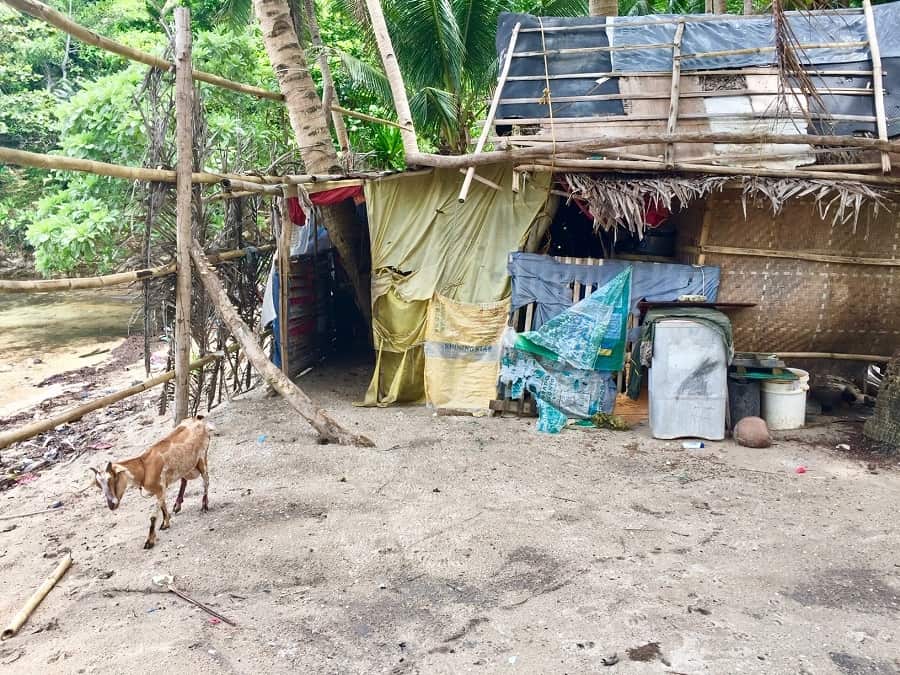
But with her husband’s death, the widow didn’t know how she would support basic life needs of her children, let alone fix their home with all of the new virus lockdown rules.
The family is extremely financially poor by Western measures. Their community is located at a gorgeous spot on the northwestern tip of Panay Island, and it’s not easily accessible. It can be reached by boat, by motorcycle up a dirt path along a cliff and then a hike back down to sea level, or hiked the whole way.
Villagers must wait for low tide and walk to the next beach inlet around cliffs in order to get fresh water for drinking and washing. Or, they must hike up the cliff, fill their jugs, and carry water back down to the village. Or, they boat to the next town to get fresh water and that takes gas, which takes money.
These are Filipino people — not indigenous Ati tribe members. It’s worth noting to our Western readers that in the developing world, not only indigenous people are marginalized. (Earth Vagabonds and overseas donors brought electricity and running water to an area of Ati land in Aklan Province formerly without those luxuries.)
The biggest problem these Naasug villagers expressed on a my recent visit was fresh water access. Also, they face other challenges like finding enough money for good fishing nets, funding to make the beach more accessible to possible tourism for future income. Fishing is hard work and not as predictable or reliable – and therefore not as profitable – as in years past.
These are problems that need long-term solutions developed by local government. None of them can be solved in a day, or a week, or even a month.
But — one problem could immediately be solved: shelter for a widowed wife and her young children.
…Humanity to the rescue
That NGO I mentioned above is Aklan Trekkers. They hike and camp all over Aklan Province, and they also raise money to help locally disadvantaged people. The co-founders really impressed me as good and kind people with genuine interest in humanitarian work, conservation, and sustainability. (As a hiker and humanitarian herself, Mom Diane would so love this group!)
I spent most of a beautiful day last week with Aklan Trekkers founders and core members at Naasug Baybay. They helped the widow and her children, along with the Creed Foundation and the Aklan Research Center for Coastal Studies.
I met the widowed mother, the barangay captain, and several villagers, including many adorable children. Our Earth Vagabonds readers know I want the world to be better for kids – even though I don’t want any children of my own.
During my visit, the widow worked on her new home in the new location – uphill on a limestone cliff at a small clearing.
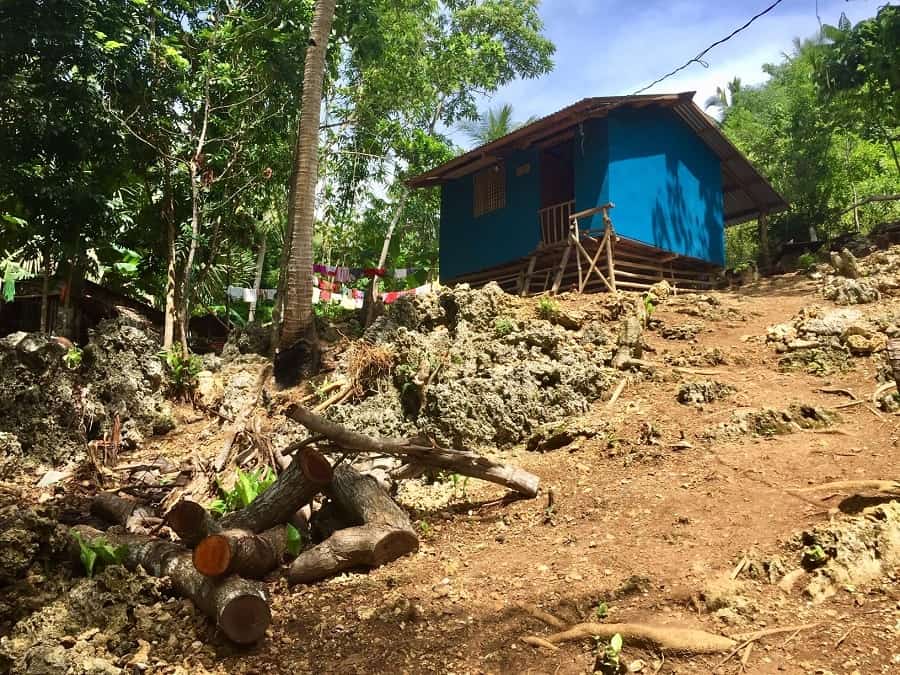
The woman prepared the area for her new simple kitchen at the back of the new home. Carpenters worked to install a counter and put up plywood walls.


Aklan Trekkers raised enough money for nearly all of the necessary parts and transport; Earth Vagabonds made a small donation to help pay for labor to get the house finished by the next day. Rainy season is coming.
A reminder to readers: an average daily wage in this area for laborers is 300 to 350 pesos a day. That’s $6 or $7 dollars.
It’s not only our Ati friends who struggle to survive in this pandemic with a lopsided recovery. It’s really almost every single Filipino we meet. The needs are endless. This is why we are big believers in sustainability, with capitalist foundations whenever possible, such as the egg-laying hens we brought to the Ati with help from our overseas donors. (The hens are still laying and the Ati are still selling!)
And almost everyone I meet wants to support themselves. Hardly anyone asks for a handout.
A few examples: the Ati who want to work to earn a wage; our local friends who make whatever they can in the kitchen to sell as street food; the people who plant gardens to feed themselves – like one of the women I met in Naasug, pictured below.
Her garden is on a cliff, with limestone everywhere and no easy access to fresh water if it doesn’t rain. Yet, she plants and she manages — she tries to help herself. It’s motivated people like her I really want to help.
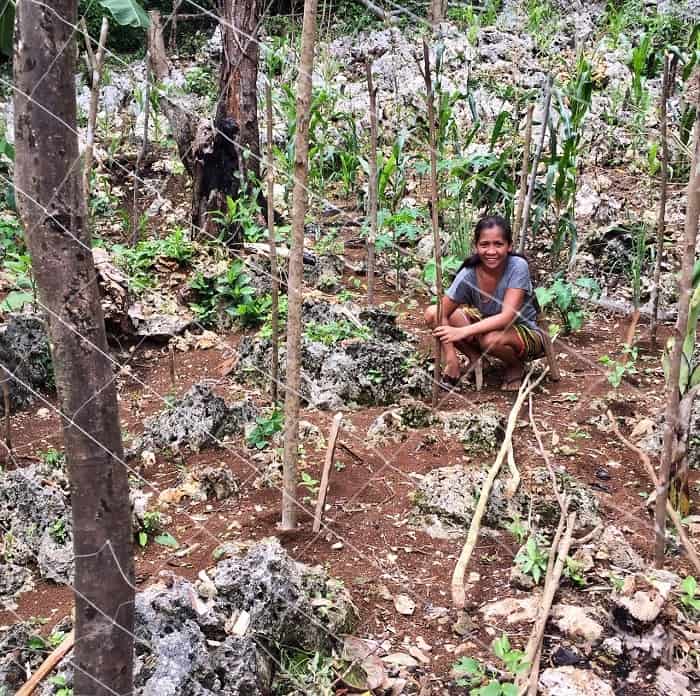
There are unsolved problems in Naasug Baybay (baybay means beach), as in any community. People like the barangay captain, Aklan Trekkers and their supporters are working on solutions. That makes me feel better. And it makes me feel even better if Earth Vagabonds and friends can be a part of a sustainable solution.
It also feels good to help just because we can. Because a grieving widow who watched her husband die from a lightning strike could really use a boost.
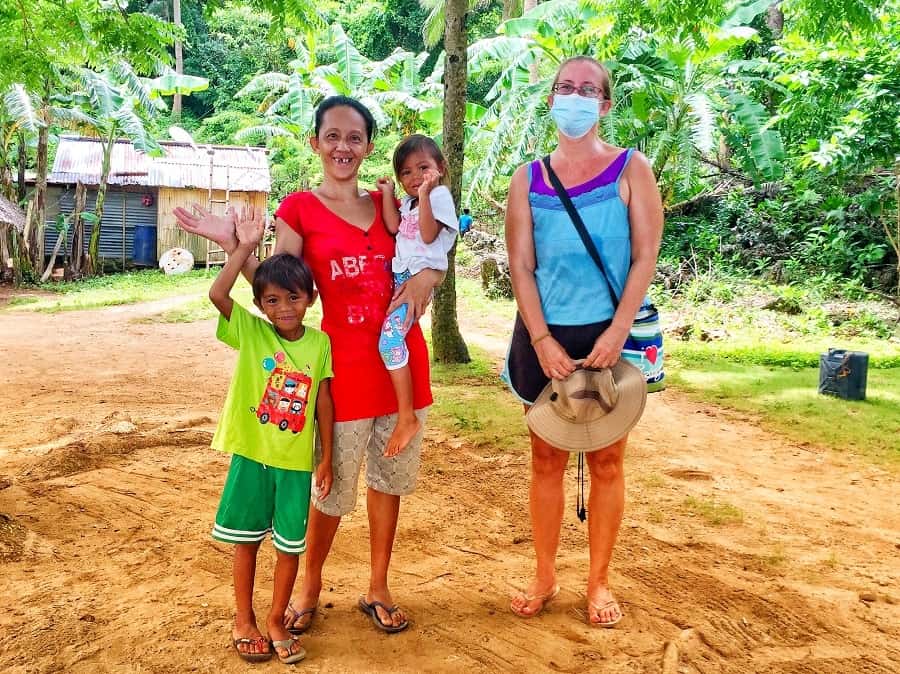
I’ll write more about Naasug and potential solutions in the coming weeks. Especially for the water situation. Imagine not having easy access to fresh water.
Hopefully, humanity can come to the rescue again.
Oh– and one last thing for now: this is what the beach at this village looks like.





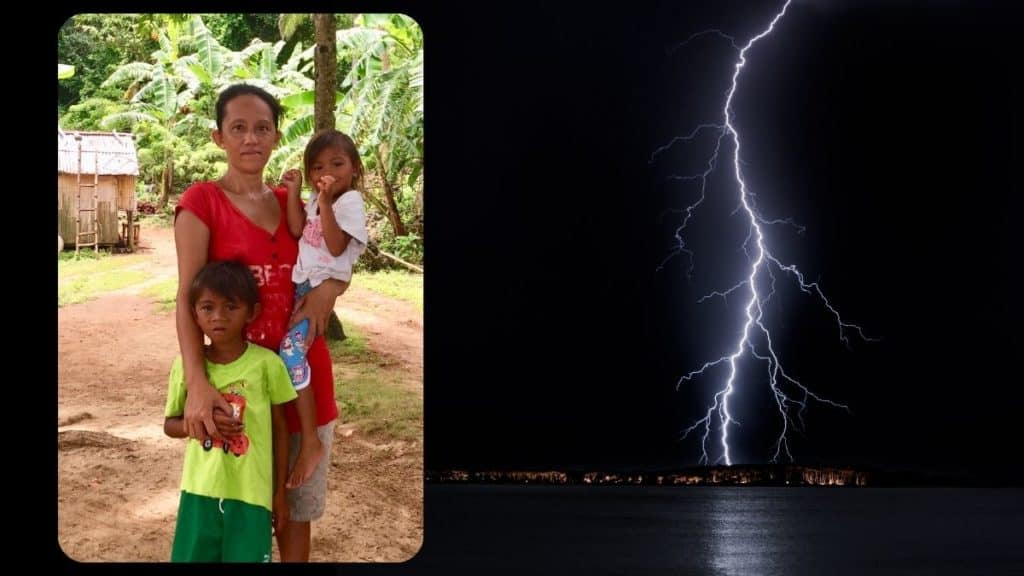
Good work and thankfully you were able to help this lady. If I was ever in such trouble, I would hope that help could be found (even at the risk of ‘triggering’ some person with enough time on their hands to be ‘triggered’). Basic humanity is never wrong and in this instance, if a picture helps raise awareness of the genuine plight of a lady that has very little, then great.